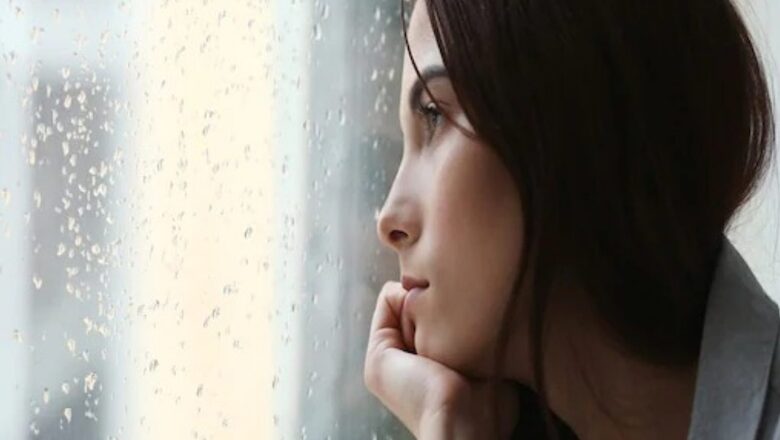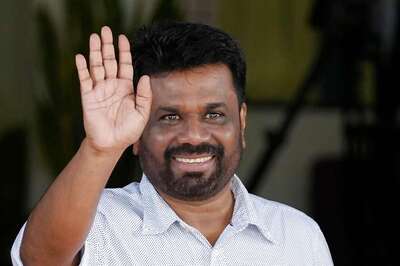
views
He was 65 years old and had pain all over his body. This man had won over Covid-19 after a brief stint at a hospital but was very depressed. He recovered with medicines and counselling.
The mental health pandemic is real following the invasion of the coronavirus. Disasters cause a spate of mental distress, from mild symptoms to serious illness.
The consequences of mental health are being studied in India, especially in the aftermath of disasters. Some examples are Bangalore Circus Fire 1981, Bhopal Gas Tragedy, earthquakes and cyclones in Gujarat, among others. Studies on the Vietnam War veterans helped understand the psychosocial impact of disasters.
The invisibility of the virus, long impact phase (virus has been relentlessly attacking since 19 months), inability to nurse loved ones who were admitted and not being able to perform the last rites have magnified the psychosocial impact. And, the poor are always the worst affected.
“Mental health in an unequal world” is the theme on this World Mental Health Day. Events in the last 19 months have brought telescopic focus on mental health, mental illness and services available for the same.
Unicef’s – The State of the World’s Children 2021, On My Mind Report – released a few days ago addressed the mental health of children for the first time in 75 years.
Building equity across mental health services and minimising the disparities are a huge challenge. Following are a few solutions to mitigate the numbing and emotional pain of those affected in India.
Families with Deaths
The way the state machinery detected COVID-19 in villages, cities and districts, the same zeal needs to be shown to reach out to those families who have lost loved ones. With more than 4 lakh deaths across India, thousands would need mental health support.
The country has about 30,000 mental health professionals, including psychologists and psychiatrists. Support group activities can be initiated offline and online for the families to help them heal. Medical Associations, Association of Psychologists and MSW (mental health social worker) groups can spearhead this noble cause.
Support group meetings have helped suicide survivors, depressed adolescents among other groups. These meetings can be conducted with a basic understanding of grief and its resolution. Short training can be provided to the staff. Early intervention can prevent long-term mental health consequences, such as depression.
Many myths need to be shattered here, such as ‘Time is the best healer’, ‘Crying is a sign of weakness.’
When I conducted a support group meeting a few weeks ago, a COVID survivor shared that he has been given a ‘mantra’ by his priest that provides him a lot of solace.
At Latur, during our intervention following an earthquake in 1993, Murari Bapu’s ‘Ram Kathas’ were more popular than our ‘mental health sessions’. Following the cyclone and riots in Gujarat, I found that ‘Allah’ and songs by the great poet Narsi Mehta offered much needed solace.
Hence, cultural wisdom needs to be respected, assimilated and integrated during these healing sessions. East and the West need to meet.
Mental health is not rocket science and those who need medication and therapy can be referred to the closest government hospital or a private practitioner who volunteers to provide pro bono care. Access to families can be facilitated by government agencies, NGOs and the state health apparatus.
Covid-19 Survivors and Others
Those who survived COVID-19, including health and emergency care workers, can also suffer from mental health disorders. Many survivors report sudden increase in heart rate and feel they will drop dead. These are panic attacks that can be easily treated.
Others reports multiple vague aches and pains. A sizeable number of COVID survivors have problems related to sleep and appetite. Excessive hand washing also is a cause of concern.
In a recent study in South East Asia, more than 30 per cent were found to be suffering from depression and 40 per cent were seen to be suffering from anxiety.
Depression and suicidal tendencies are also reported in big numbers. Japan has recorded an increase in suicides in the wake of COVID-19. The US has seen an increase in ‘fentanyl’ poisoning — a painkiller made from opium. A small number have nightmares troubling them. They are also not able to experience joy or sadness.
The UK has a minister for loneliness and Japan has followed suit. Australia has a mental health minister. Madhya Pradesh has a minister for happiness.
India needs a mental health minister as one-seventh of people are mentally ill, that makes 20 crore Indians needing immediate treatment, as per data shared by the Ministry of Health and the Indian Council of Medical Research (ICMR) in 2019.
Early identification and treatment is the need of the day. Mumbai had a robust COVID helpline (1916 helpline number) across every municipal ward for beds. Similarly, mental health helplines are also the need of the hour, across 718 districts of the country. Although a few helplines are available, but these are not enough. Massive awareness campaign needs to be mounted to kill the shame and stigma associated with mental health.
When ICMR can conduct seropositivity surveys to study herd immunity across the country, why are similar studies not conducted to evaluate mental health morbidity?
As of today, there are 5 lakh beds across India in a ready state in case the third wave strikes. The same passion, strategy and system-building needs to be shown for mental health too.
Social Media Outreach
With immense political will, the state has provided free food grains and doles to more than 80 crore Indians for long. This zeal and political will have to be adopted to make mental healthcare accessible.
In an era where 50 crore Indians use smartphones, social media needs to be fully utilised to create awareness about mental health, mental illness and to improve help-seeking behaviour of those who are under emotional distress.
The most creative and high-volume media campaigns are designed during elections where tonnes of money are spent. Mental health campaigns need the same push, and that is possible.
COVID-19 has provided an opportunity to upscale our mental health systems. Where 1,39,123 people died by suicides as against 79,000 due to tuberculosis or malaria in 2019, mental health has been ignored for long.
The time has come to accept that while saving lives is crucial, the state responsibility towards citizens doesn’t end there. The government should take steps to build a calibrated response to COVID-19’s impact on mental health.
Dr Harish Shetty is psychiatrist at Dr L.H. Hiranandani Hospital. He has worked with flood and riot survivors. The views expressed in this article are those of the author and do not represent the stand of this publication.
Read all the Latest News , Breaking News and IPL 2022 Live Updates here.




















Comments
0 comment